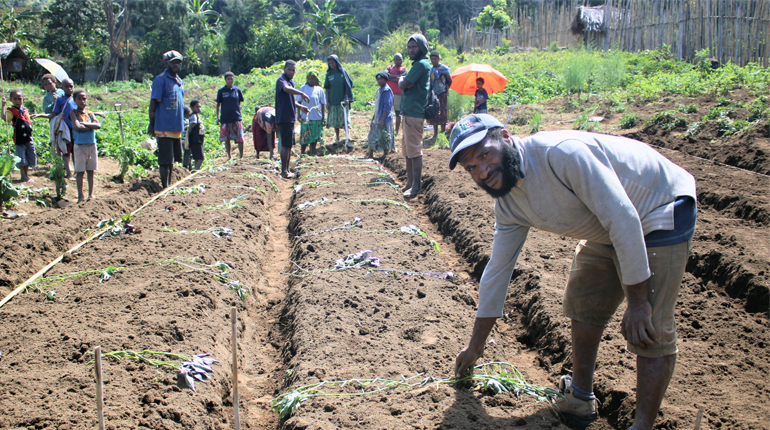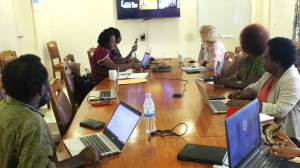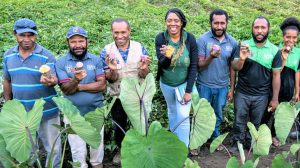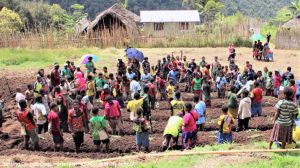It is a privilege to work with committed farmers who rise above the odds to usher new agricultural technologies and interventions into their communities.
The National Agricultural Research Institute (NARI) has been supported by many productive farmers, over the years. One of them is Anno Darkop. Anno hails from Teptep in the Naiyudo local-level government area of Raikos district, in Madang province.
He has been voluntarily managing the Teptep Department of Agriculture and Livestock (DAL) demonstration farm, since 2015.
Based on his leadership quality and experience with other projects, Anno is now engaged to help NARI roll out a sweetpotato germplasm conservation and utilization project among isolated communities between Raikos and Kabwum district of Morobe province. The project is funded by the Benefit-sharing Fund of the International Treaty on Plant Genetic Resource for Food and Agriculture (ITPGRFA).
Anno acknowledged that the sweetpotato conservation project would help to address severe food shortages experienced in these communities when their staple crop – sweet potato – was decimated by frost during the droughts of 1997 and 2015.
He said there is now hope for greater resilience in the event of future stresses. “This project is now introducing to us new sweetpotato varieties and how to plant, breed and conserve them. This would also help us to look after our local sweetpotato and potato varieties”.
According to Anno, potato late blight disease was also responsible for the decline of local potato varieties in recent years. “I have tried to keep samples in my germplasm in the hope that an opportunity would arise through the work of agencies like NARI to study and control the disease”, he said.
He also mentioned that community-based plant genetic resource committees initiated by the project would help the people to also collect and preserve planting materials for other important crops such as taro, cassava, grains and leafy vegetables.
Anno further pointed out that the poly-cross nursery trials are currently done at selected schools and the Teptep DAL demonstration farm. “We can use the skills learnt to produce new varieties of sweetpotato to supply other parts of our district, province and the country as a whole”.




